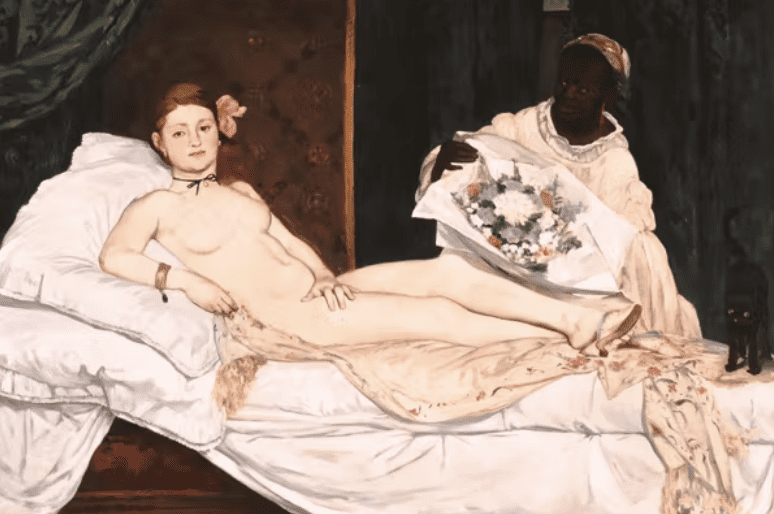Manet’s paintings were regularly rejected by the Salon, yet he continued to submit them and declined to exhibit with the Impressionists, who regarded him as a father figure. Even when his works were accepted by the Salon, they were routinely received with outrage among both critics and the public. This response baffled him.
When his ‘Olympia’ was shown at the Salon in 1865, along with his ‘Jesus Mocked by the Soldiers’, Edouard Manet wrote to Baudelaire in exile in Brussels: ‘I wish I could have your sound judgment on my pictures, because all this uproar is upsetting, and obviously someone must be wrong.’ And to Antonin Proust he said: ‘Only a fool could think I’m out to create a sensation.’
Ironically, although during his lifetime Manet was considered by many to be a dangerous radical, no artist manifested a greater reverence for the Old Masters. The influence of Spanish art on his work, especially of Velázquez and Goya, was recognised at the time — unsurprisingly, given the explicit Spanish scenes in his oeuvre.
The role of Italian Renaissance art in Manet’s painting has received less attention, despite the fact that Italian works provided the direct inspiration for the artist’s two most controversial, now most celebrated, paintings: ‘Déjeuner sur l’herbe’ and ‘Olympia’.
In 1850, at the age of 18, Manet began a rigorous, six-year-long traditional training in the Paris studio of Thomas Couture, a devotee of Venetian painting. In the same year Manet registered as a copyist at the Louvre, a collection rich in Italian art. In 1853 he made his first trip to Venice and Florence. He returned to Venice again, with his wife and a fellow-artist, James Tissot, in 1874.
The first room of the fascinating Manet: The Return to Venice, at the Doge’s Palace, curated by Stéphane Guégan and designed by Daniela Ferretti with her customary panache, presents key pieces from the archive of drawings and paintings from Italian art that Manet built up in Paris and during his visits to the peninsula.








Comments
Join the debate for just £1 a month
Be part of the conversation with other Spectator readers by getting your first three months for £3.
UNLOCK ACCESS Just £1 a monthAlready a subscriber? Log in